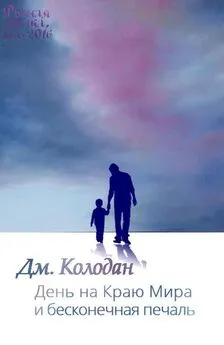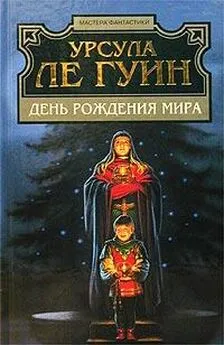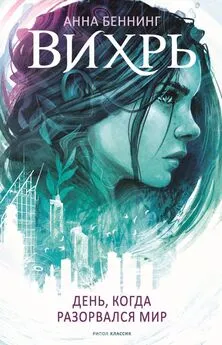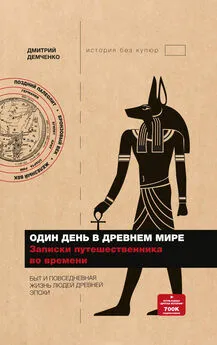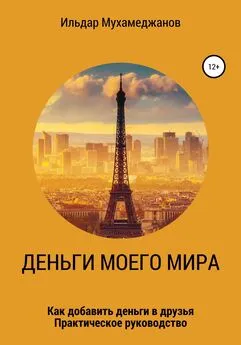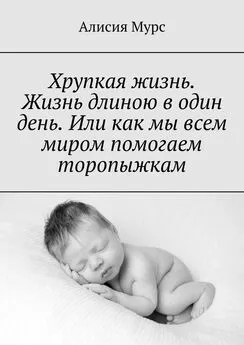Роллан Сейсенбаев - День, когда рухнул мир
- Название:День, когда рухнул мир
- Автор:
- Жанр:
- Издательство:неизвестно
- Год:неизвестен
- ISBN:нет данных
- Рейтинг:
- Избранное:Добавить в избранное
-
Отзывы:
-
Ваша оценка:
Роллан Сейсенбаев - День, когда рухнул мир краткое содержание
Роллан Сейсенбаев – признанный классик казахской литературы. Его романы, повести, рассказы издавались в самых престижных журналах и издательствах России, Англии, Америки, Германии, Италии, Венгрии, Польши, Японии и Кубы.
Роллан Сейсенбаев награжден «Золотым офицерским крестом» Польши, «Золотым Рыцарским Крестом» Венгрии, орденом «Дружбы» Кубы за заслуги перед литературой. Он является обладателем множества международных литературных премий.
Крупнейшие критики мира называют рассказы Роллана Сейсенбаева жемчужинами. Поистине Он уникальный Мастер слова.
Роллан Сейсенбаев стал своеобразным эталоном современной казахской интеллектуальной прозы.
День, когда рухнул мир - читать онлайн бесплатно ознакомительный отрывок
Интервал:
Закладка:
As soon as we reached the house we saw my father.
„Grandfather, grandfather!“ My son jumped headlong at him and my father turned around in surprise when he. heard his grandson’s voice. Father was in fact walking about, the yard with other tenants.
„Darkhan, my angel!“ He joyfully threw up his hands and smothered his grandson with kisses. „My little angel, my angel,“ he said and then became thoughtful. I tried to imagine myself a little boy again and my father young. I remembered that he rarely embarced or kissed me so lovingly and anxiously when I was small. But then times were different – harsh, compassionless, not favourable to TENDERNESS. And so he had preserved the unspent capacity to love a little being of his own and now that love and tenderness spilled over, wholly given over, to his ‘grandchildren. I do not know whether this is good or bad, I just do not know. There is a lot I still do not know about in this life of ours.
„Ata, we phoned you but there was no reply. We became worried and came over.“
„And I didn’t think of phoning you.“ Tears stood in my father’s eyes and he clasped Darkhan tightly.
I remember how he would often take his grandson home on-Saturdays and Sundays. They would take trips all over the place and return happy, excited and tired. They would visit the shepherds, relatives or father’s old war-time mates. He had many friends; he used to like helping his friends and people whom he had helped never forgot what he had done for them. He was a welcome guest at a Russian fisherman’s, at an Uygur musician’s, at the home of a Korean who cultivated water-melons.
We returned home late at night and my son, tired out from the day, sweetly slept in my arms, mumbling from time to time, „Grandfather… little hare… Grandfather… little hare, isn’t it?“ I gathered that this was a snatch of his unfinished conversation with his grandfather.
Eleven years later, my son and I would stand at the graveside of Kant in the centre of the town previously known as Konigsberg, on whose streets a paratrooper, my father, had been wounded. And now his grandson, my son, is serving as a frontier guard in a Baltic Military District.
It was a cold, damp day and drizzling drearily. We stood by Kant’s grave and my son suddenly said, „Dad, do you remember when I was in my first year at school and there was a huge underground explosion?“
„When you saved us?“ I said smiling.
„Yes, I remember how I ran from school and was afraid I’d be too late. I thought I wouldn’t make it and you would all be killed and the house would be destroyed. Yes, I remember. I dragged Markhaba down the stairs. She was little then, terrified, and she kept mumbling, ‘Mum, Mum’…“
„What made him remember that?“ I thought when we were passing the monument to Schiller near the drama theatre’. The monument… it had been spared although the city had been bombed so much that nothing had been left standing. A war is a war. I suppose it has its own laws…
„Yes, and that day when we went to see grandfather he took me to see his old friend! They had both fought at Konigsberg and for some reason, they started to talk about it, recalling the battle. Grandfather was an excellent raconteur. He described Konigsberg so perfectly that I was overwhelmed when I arrived here because his description was so exact. And did you know that he lay near the cathedral by Kant’s grave for half a day? That’s when he was wounded and heavily concussed. Thanks for bringing me here.“
My son’s words perturbed me considerably.
„I’m glad that we could be here together,“ I said.
And then I remembered that while he was alive, my father often dreamt of showing us Konigsberg, or Kaliningrad as it is now called. „You’ll see the kind of city it is,“ he would say. „Those castles which have miraculously survived are a real wonder! People have settled there for centuries. They knew how to build, how to live. It’s enviable how well they do many things. Let’s take cows for example. Do you know how much milk the Germans manage to get from their cows? We must go, we certainly must go there. You’ll see the places where I spilled my blood.“
His dream never came true. At fifty-eight he died from an extensive heart attack.
And here we are, his grandson and his son, wandering around the town, over those stones where my father’s tarpaulin boots had stepped, the grandfather of my son.
The memory of three generations of Kazakhs has flowed into one in a strange European city, far from our Asian steppes and mountains.
In the evening of the fourth of August I was to fly to Semipalatinsk. All the matters I had to have settled by the fourth were done and on my desk calendar, opposite each item, was a thick, red tick.
I automatically turned over the page and gasped.
5th AUGUST. FRIDAY.
Twenty-five years ago (1963) in Moscow, the representatives of the Government of the USSR, the USA and Great Britain signed a Treaty banning the testing of nuclear weapons in the atmosphere, in space and under water. More than one hundred governments were party to this treaty.
To my mind, this was an extraordinary anniversary, perhaps the most important date to be commemorated this year, an event of universal magnitude, a reminder that on that day men could feel like human beings instead of murderers. The Treaty was worthy of people and people were worthy of the Treaty.
5th AUGUST. COMMEMORATION OF MY FATHER.
In the morning when I arrived in Semipalatinsk, the first thing I did was to rush to a newspaper kiosk where I bought up many local and national papers.
„The city centre,“ I told the taxi driver, and settling down in the back seat of the Volga, I began to look through the papers bursting with curiosity to find out as quickly as possible how the world commemorates the long-awaited day of the celebration of human reason.
I carefully looked through the Pravda, leafed through the Komsomolskaya Pravda, the Izvestia, and my hands began to shake. „It can’t be!“ I thought, opening up the Trud, but here too there was not even a word on the twenty-five-year-old Treaty. I put my last hopes on the local the Semei Tani, but even this paper filled with articles from TASS and KazTAG was also silent about the Treaty. I lost my temper. Are there no independent ideas in this town, doesn’t it have its own voice? Is it possible that narrow-minded self-conceit is flourishing in my native land, that very conceit for which the great Abai reproached my countrymen? I was also angry with myself for not thinking of writing about this anniversary. Something inside me crumbled. Pitiful and irresolute, I was disgusted with myself.
„Brother, if you have time, take me to the cemetery. I want to visit my father’s grave,“ I asked the taxi driver. We stopped in front of the park. I gave the whole bundle of papers, which had only annoyed me, to the flower-sellers. I bought a bunch of deep-red carnations, my father’s favourite flowers.
I opened the gate of the fence and stepped onto the green, grassy carpet. I fanned out the flowers on the dark granite at the foot of the tall gravestone, out of which my father’s face gazed.
„Greetings, Father.“
„Greetings, my son, ainalain, at last you have come. Make yourself comfortable.“
„I dream about you, Father.“ „Does that trouble you?“
„No, it brings me joy, Dad. Darkhan and I visited Kant’s grave and we thought of you. Why are you silent, Father?“ „You say that you thought of me?“
„Yes, do you remember you told Darkhan about Konigsberg, eleven years ago?“
„Son, let my grandson know that I loved him more than my own life.“
„He came here to pay his respects to you before he started his military service.“
„I remember it, son. We, the dead, remember all.“
And still I could not rid myself of the thought that not even a single Soviet paper had recorded this event of global importance. Twenty-five years ago, people from one hundred countries had for the first time cut short the nuclear arms race in the atmosphere, in the cosmos arid under water and we, a country which calls itself the most humane in the world, is silent about this victory. Perhaps we fear something? Nothing was clear to me and my head was spinning.
Arid then I heard my father’s voice again. „Don’t be so upset, son. This is simply absent-mindedness. Or perhaps some coordinator of world events was sacked in keeping with the cuts in the state budget! I’m joking, but of course you’re right. The whole world should have commemorated this day.“
„It’s just so deplorable that no one remembered, Father! Besides, over the last twenty-five years people have demonstrated that they can trust each other. I think we should bring everyone together again – either in Nevada or in Semipalatinsk, to sign another agreement and once and for all to prohibit nuclear explosions – but this time underground ones.“
„How long will you stay here in your homeland?“
„Not for long. I’m going to Genghiztau tomorrow. I’ll pay my respects to the graves which are not being looked after. Farewell, Father!“
„Goodbye, son!“
Next morning I reached the mountains. I had not been there for thirty-five years. The gloomy, grey rocks compelled me to strain my memory in my futile efforts to restore the images of the past which kept slipping away. We rode with my friend. We found my grandparents’ graves but no matter how we tried, we could not locate where little Kenje had been buried.
The night was drawing in and we had to hurry to escape the captivity of the dark mountainous ravines. It was long after midnight when we descended into the valley which lay at the foothills of the Genghiztau where there was a lonely shepherd’s yurta where my friend’s younger sister and her husband lived.
They were expecting us. The table was set. The samovar hummed and the meat was cooking in a cauldron. We were exhausted, worn out after the day’s riding and all we wanted to do was to lie down and close our eyes. However, we were obliged to observe the customs of the steppe and so we tried to behave like real dzhigits.
While on the road, my friend explained the terrible misfortune which had befallen his sister and her husband, who was a good-hearted, simple and hard-working fellow. Their first-born, who was by now almost five had been born without arms. They had another two children who did not live long and died of leucosis. His sister had a fourth child who is also disabled – a freak of nature – the crown on his skull would not harden.
„When I think about her, my heart bleeds,“ he said finally. „After the last birth she went grey, she wanted to commit suicide, but her husband saved her. He’s a reliable fellow; bears all this misfortune bravely. I love him for his courageous faith and because he has not become embittered. Do yon know what I mean…?“
„Yes,“ I replied. „But perhaps we had better not bother them so late?“
„What are you saying? No, they’re always glad to have company.“
Thank God he did not grasp the underlying motive behind my question. I felt ashamed but I did not want to look into the face of yet one more tragedy amidst the untold number which had been our nation’s lot. I had had my fill of sorrow in my native land. In Djambul, I was shown the victims of the chemical industry – children with two heads, three arms and legs. To this day, I still remember those inhuman, disfigured faces, their mothers’ desperation and their fathers’ silent shame. I remembered the people from the Aral who die like flies from cancer of the oesophagus, the misfortune of the coal-producing Karaganda, of Mangishlak Peninsula with its oil pipes of Guryev, Baikonur, and of the copper and lead production of East Kazakhstan. These days one is hardly able to find any place where one can breathe clean air, drink clean water, walk through one’s native land without the fear of radiation, poisoning, infection.
Читать дальшеИнтервал:
Закладка:
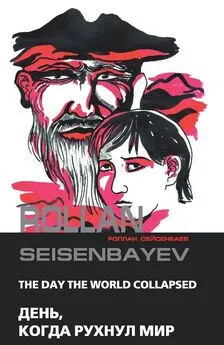
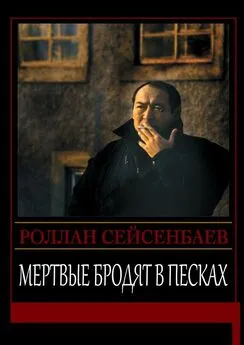
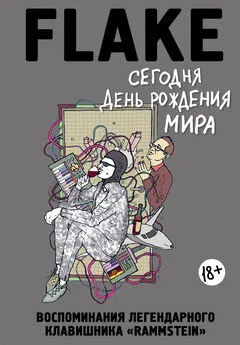
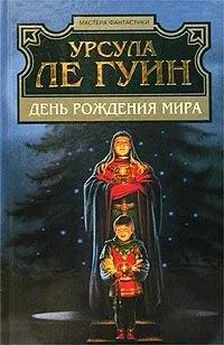
![Кристиан «Флаке» Лоренц - Сегодня День рождения мира [Воспоминания легендарного немецкого клавишника]](/books/1071826/kristian-flake-lorenc-segodnya-den-rozhdeniya-mira.webp)
